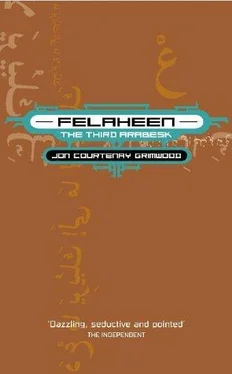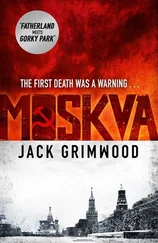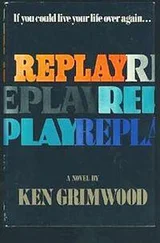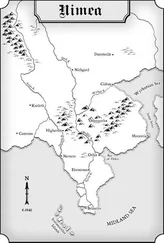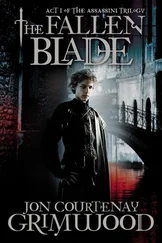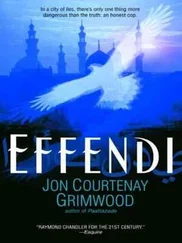"Take this," Hani said, shovelling everything back into Micki's bag. "As soon as you get across the border turn on the cell phone and it'll remind you that you need to make a call."
"I do?"
"Yes," said Hani, "definitely. Call the number that appears and demand to speak to Effendi."
"What if Mr. Effendi doesn't want to speak to me?"
"He will," promised Hani, wondering if the American realized she'd just agreed to make the call. "And if he doesn't, tell whoever answers that Hani says, If Effendi doesn't come to the phone she'll stop letting him play with her money . . . He keeps investing it in his own companies," Hani added, as if that explained everything.
The words were Hamzah Effendi's guarantee that the message was real. What he did would have nothing to do with money. It would be done for Raf. A debt repaid.
"What do I tell him?" Micki asked anxiously. "When Effendi does come to the phone?"
"Tell him that Murad and Hani have been murdered by Kashif Pasha . . . Tell him to tell everyone he knows." Catching the American woman's appalled expression, Hani held up one hand as the first tears started to trickle down Micki's face, cutting tracks in her heavy makeup.
"It might not happen," Hani said.
CHAPTER 47
Monday 14th March
The call from the minaret came harsh as a crow. Only there was no minaret and when Raf kicked at a shadow it squawked into life and sliced the night in a spread of serrated black blades.
"Very pretty," said Felix, nodding at Raf's shackles. So Raf swung them at him and missed, earning himself a smile. A real fat man grin.
"Ignore him," the fox said. "He's just like all the others."
Tiri was talking about the ghosts who walked out of the salt wilderness towards Raf, their carcasses destroyed, their faces twisted in the final moments of death or smoothed free of all memory.
"I know," said Raf and forced one foot in front of the other, extracting another step from his shaking body. They were dead and so was he. At least that was what it felt like. This razor state between existences, flash-filled with waterfalls of exaltation that appeared one minute to run down his spine, then vanished the next, leaving him spent as an hourglass.
Behind Raf stretched footprints speckled with blood from where he'd slashed his feet on rose petals. Rose de sable , crystallized gypsum. He'd come across a field of the things, stone flowers sharp as knife blades, and had walked through, being too tired to walk around.
Raf thought they grew there naturally. But the fox insisted they'd been dumped as second-grade goods, unsuitable even for tourists like him. It claimed to have been there when the dumping was done.
"I'm not a tourist," said Raf, but the fox had to disagree, informing Raf that he was a tourist in his own life. A hit-and-run recidivist who fixed himself on occasional moments of clarity. Their argument lasted so long that Raf forgot to feel pain and when he next looked around, he'd walked two, maybe three miles without ever seeing anyone he'd killed.
Felix came round twice and looked happier the next time he appeared, face shredded and egg yolk running from one eye but definitely more smiley. "You're fragmenting," he told Raf.
"You can talk." The retort just came and Raf was still wondering how to apologize for his tactlessness when the fat man gave a shrug like he agreed and blew apart in the night wind. Without shades, minus clothes, his hands chained. And now rudeness. The fox was right. Raf was excelling himself.
Sharp edges cut his ankles every time Raf's feet broke through salt to hit one of the many puddles of brine beneath. Smears of what looked like rust threaded the chott's drying surface, marbling its saline whiteness. Blood on snow, his mother's favourite shot. Only the saline sting to tell Raf that what he walked on wasn't ice or snow.
Somewhere up ahead should be a road. A strip of tarmac floating on treated polystyrene blocks, linked together and slung across the chott, Raf seemed to remember that was how it went. Polystyrene blocks so the weight of the road didn't sink it into the chott's soft surface.
Raf couldn't have used the road even if it had been heading north towards Camp Moncef rather than west towards Tozeur. But Raf needed to cross it and until he did, he was, by definition, more than half a day away from killing Kashif Pasha.
"You know what?" said a voice.
Raf didn't.
"You look shit." The drawl was skin-crawlingly familiar, the lips from which it issued tinted with a shade of Shu Uemura too deep to class as ironic. A turned-up collar framed a face sharp enough to break hearts. "Life not treating you too well?"
"I'm fine," snapped Raf.
"Of course you are," said Wild Boy. "Anyone can see that." He touched pale fingers to his brow in a mocking salute, swept dark hair back from his eyes and vanished.
"I don't remember killing Wild Boy," Raf muttered.
"You don't remember much at all, do you?" said the fox. "And what you do remember changes each day. I've never met anyone like it for avoiding the obvious." The animal paused, took a look through Raf's eyes at the night wilderness of the chott and sighed. "What do you think happened to him after you went missing?"
"He came looking for me?"
"And did he find you?" asked the fox.
Raf shook his head.
"Did anyone?"
There wasn't an answer to that. At least not one that made real sense. Although maybe that wasn't surprising given his mind was full of ghosts and memories and things that might have happened but probably didn't or were about to happen, but only . . .
"Only what?" the fox demanded.
But Raf was already asleep. When he woke the walls had changed colour again. His bed was the same but the windows were different, wood not rusting metal. The oak outside was bare where it had been green. Only the firs on the far slopes looked the same. Like lazy smoke frozen in the act of rolling uphill.
"You can sleep again now," someone said.
He'd had days like that at Roslyn. Dozens of them. And before Roslyn, days in a white room with flowered curtains across the window. Steel bars painted in childish reds and greens and blues because some expert decided bright colours made window bars look less intentional. As if the security measures had been put up by accident and no one could be bothered to take them down again.
For maybe a year Raf had believed the bars were there to keep him in. Only towards the end did he realize they existed to keep others out. Evil people, one nurse told him. Misguided protestors. She was Swiss, much younger than he realized and she vanished the morning after he took a bar of chocolate from her. Neither had realized they planned to do double blood tests that day.
One morning, shortly after that, Raf woke feeling stiff and cold with an ache in his ribs and new scars on his wrists. And his mother was sitting in a chair in the far corner of his room. She was crying, which wasn't unusual and carrying primroses, which was . . .
"You look older." He said it without thinking.
When she'd finished drying her eyes she came over and stood by his bed, her fingers reaching out to touch his face. "You don't," she said. The coat she wore was new and her shoes were different, shiny at the toes and unscuffed on the heels. She'd also changed the colour of her hair.
As always, Raf forgot how angry he was about everything and agreed to come home. Although it was difficult to remember where home was at that point. Not New York for the second time, that came later.
He'd been . . . Raf found it impossible to remember how old. Somehow birthdays and candles and parties with presents had always seemed to pass him by.
Читать дальше
